Online DNP-FNP Program
Overview

Why choose Maryville’s accredited online DNP-FNP programs?
- Access coursework 100% online with no campus visits required.
- Apply with no GMAT or GRE scores required.
- Earn your DNP-FNP in around 36 months.
- Complete clinicals locally in your preferred setting.
- Enjoy no waiting list once you’re accepted.

Bravely lead the future of family nursing practice with your DNP
Want to expand your nursing skills and care for patients and families of all ages? Maryville’s online Doctor of Nursing Practice with a Family Nurse Practitioner (FNP) concentration is perfect for experienced nurses who want to specialize in family-focused care while earning a terminal degree.
Our program features 100% online coursework that can prepare you to work with patients across the lifespan in a variety of settings, including family practices, outpatient clinics, and community health organizations.
With flexible scheduling, you can complete your DNP-NP in approximately 36 months and take the next step toward FNP certification.

What is the online DNP-FNP program?
The DNP-FNP is a terminal degree in nursing that includes the coursework needed to pursue high-level nursing positions and FNP certification. This program focuses on equipping you to provide comprehensive primary care, preventive care, and wellness education to patients of all ages. With a DNP-FNP, you can pursue leadership roles in nursing, engage in patient advocacy, or contribute to healthcare quality improvement initiatives for families and communities.
We also offer an online DNP degree without the nurse practitioner focus. This pathway allows you to finish the program more quickly but does not prepare you for NP certification.
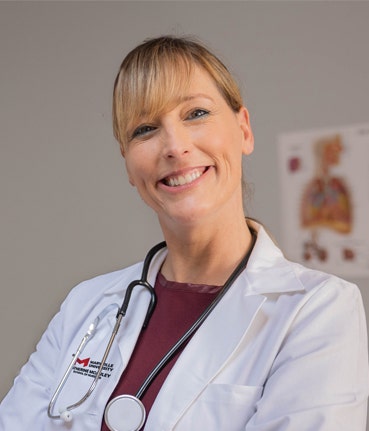
Earn your online DNP-NP with Maryville and prepare to go further
- Graduate from a CCNE-accredited program.
- Study online on a schedule that works for you.
- Get personalized support to help you succeed academically as you prepare to thrive professionally.
- Learn to provide holistic care for patients of all ages and stages of life.
- Gain insights from expert faculty with experience in family nursing and primary care.
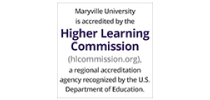
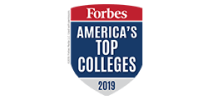
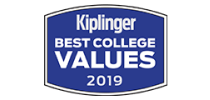
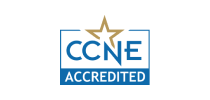

Important dates for 2026
Program details
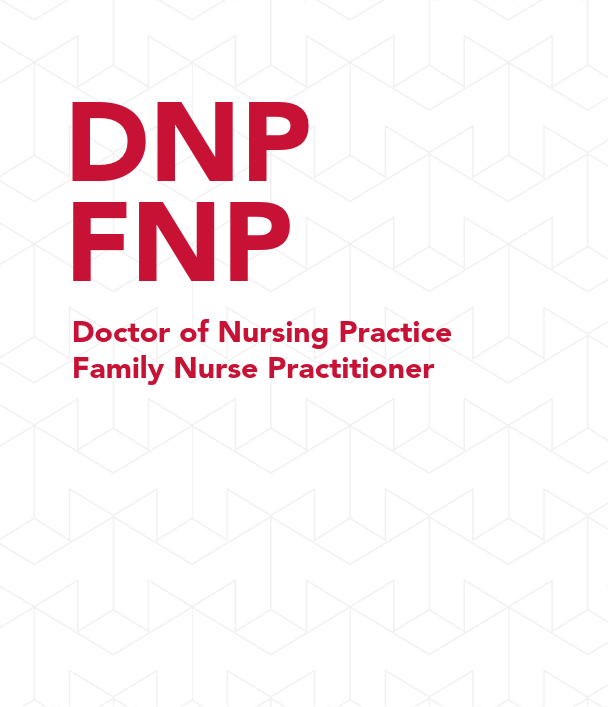
The Maryville online DNP-FNP program is designed to:
- Help you deliver comprehensive care to individuals and families across their lifespan
- Deepen your understanding of advanced nursing practices, healthcare policy, and leadership within organizations
- Prepare you for FNP certification, allowing you to take on a greater role in improving family and community health
- Address the increasing need for primary care providers for families and individuals of all ages across urban and rural settings
- Build your expertise in evidence-based practice, clinical outcomes, and advanced patient care

DNP-NP: A deeper look
The DNP-NP program allows you to earn a terminal nursing degree while completing the required coursework for FNP certification. It combines practical advanced clinical training with leadership-focused education, empowering you to provide primary care to patients of all ages.
Even if you’ve already earned an MSN or NP certification, this program can help expand your skills. Graduates can pursue careers in clinical practice, administration, policymaking, or nursing education.

Why earn your Doctor of Nursing Practice (DNP) with an FNP concentration?
As an experienced nurse, you’re ready to take the next step in your career. The DNP-FNP program can prepare you to care for patients of all ages, improve health outcomes, and lead in your profession.
Learn more about how our online DNP-NP program can help you make a greater impact in family nursing.

DNP-NP vs. PhD in Nursing
While a PhD focuses on research and academic career preparation, a DNP or DNP-NP is tailored to help you become a clinical leader focused on improving patient care and healthcare systems. The DNP-FNP track is highly versatile, enabling you to pursue family nurse practitioner certification and care for families and patients across the lifespan. It also positions you for leadership, administrative, or policy-oriented roles.
If you're passionate about family-centered care and want to continue serving patients of all ages, the DNP-FNP is the right choice for your career.

The field needs you now
As healthcare continues to evolve, family nurse practitioners (FNPs) are in growing demand to provide comprehensive care across all stages of life. This demand is fueled by an increasing focus on preventive care, provider shortages, and the need for accessible healthcare for families and individuals in diverse settings.
The future of healthcare depends on leaders who are passionate about making a difference — leaders like you.

Dedicated student support from application through graduation
At Maryville, your success is our mission. Through our online DNP-FNP program, you’ll receive personalized guidance from application to graduation. We offer the tools, resources, and support you need to grow as a leader in nursing and make a meaningful impact in the lives of your patients.
- Personalized student support advising
- 24/7 technical help desk
- Online study and tutoring services
- Access to the library and other learning tools
Learn more about our dedicated student support coaches here.

What other DNP-NP specializations are available?
Family NP isn’t your only option when you earn your DNP-NP from Maryville. We offer four other concentrations to help empower your nursing career and allow you to practice in the area you’re most passionate about.
Careers

What can you do with your online DNP-FNP degree?
As a family nurse practitioner, you have the unique opportunity to provide care to patients of all ages, from infants to seniors. With your online DNP-NP from Maryville, you can pursue advanced roles that enhance your ability to deliver comprehensive care to families and communities while shaping the future of nursing.
Whether you want to refine your clinical skills to improve family health outcomes or pivot toward leadership roles in areas like education, healthcare administration, or policy, a DNP-FNP offers the tools to advance your career and make a lasting impact.

Career prospect trends for DNP-educated nurses and NPs
- The U.S. Bureau of Labor Statistics projects a 35% growth in advanced nursing positions, including FNP roles, between 2024 and 2034.
- With an ongoing shortage of physicians, particularly in primary care, skilled FNPs will play a vital role in addressing gaps in healthcare delivery, according to the Association of American Medical Colleges.
- Family nurse practitioners are consistently ranked among the highest-paying roles in nursing by careers resources like Indeed.
- While an MSN is the typical requirement for becoming an NP, leading organizations like the AACN and NONPF are pushing for the DNP to become the standard qualification for NPs.

DNP-educated nursing professionals are industry difference-makers
The DNP offers a pathway to leadership in both clinical and nonclinical settings. With trends like the growing demand for nurse-led primary care and an increasingly diverse patient population, FNPs with DNP credentials are positioned to take on impactful roles in the evolving healthcare landscape.
Additionally, DNPs can help address the ongoing shortage of qualified nursing educators identified by the AACN. By stepping into faculty positions, you can help train and inspire the future workforce of family nurse practitioners and other nursing professionals.

What can online DNP or DNP-NP graduates do?
As a terminal nursing degree, a DNP paves the way for more than just professional independence, specialized roles, or higher salaries. DNP graduates use their expertise to create meaningful change. Among other roles, responsibilities, and opportunities, DNP-educated nurses can:
- Lead and manage clinical research initiatives
- Support and champion changes in healthcare policy through legislation
- Advocate for practices that prioritize patient safety and rights
- Lead collaborative projects to shape the future of nursing
- Take on key leadership roles in executive positions or government offices
- Open an autonomous practice (24 states now permit those with a DNP to open their own clinics)
As a family NP with a DNP, you can also pursue higher-level practice and leadership roles in patient care in your concentration area.

What careers can I pursue with my online DNP-NP?
With your DNP, you can pursue nursing roles in a variety of fields and settings, both clinical and nonclinical. The credential helps prepare you to excel in areas such as nursing administration, policy, education, clinical training, executive leadership, or nursing informatics. Some specific roles you may consider include:
- Chief nurse anesthetist
- Chief nursing officer
- Director of nursing services
- Health policy analyst
- Hospital CEO
- Medical and health services manager
- Nursing manager or supervisor
- Nurse midwife
- Nursing professor
Find out more about DNP and DNP-NP careers here.

Where do DNP-educated FNPs find career opportunities?
Earning your DNP opens the door to a variety of career opportunities within the healthcare system and related fields, including the following.
- Administrative and political offices
- Colleges and universities
- Community health centers
- Hospitals and clinics
- Long-term care facilities
- Nursing research facilities
- Rehabilitation facilities
- Retirement homes
- Specialty practice, such as cardiology or oncology

What is the typical salary for online DNP program graduates?
As of 2025, PayScale data indicates that individuals with a DNP earn an average base salary of $115,000, based on self-reported data across various professions. Careers requiring or recommending a DNP often offer both high pay and strong job satisfaction.
Clinical roles such as nurse practitioners typically earn more than administrative or nonclinical positions. For example, the U.S. Bureau of Labor Statistics reported a median salary of $129,000 for nurse practitioners in 2024. Family nurse practitioners are also ranked among the 11 highest-earning nursing specialties, according to Indeed.

What is the pay for DNP-educated family nurse practitioners?
According to data compiled by Indeed, family nurse practitioners have a reported average U.S. salary of around $115,000. And PayScale data indicates the top 10% of earners report salaries of more than $131,000, with factors like location, education, and experience influencing pay.
With a DNP degree, you can pursue higher-level, well-paying roles in advanced patient care or nonclinical nursing fields. Some examples include:
- Chief nursing officer (CNO): $148,000*
- Clinical nurse specialist: $104,000*
- Director of nursing services: $102,000*
- Nurse manager: $98,000*
* Average salary information based on data compiled by PayScale as of 2025
Earn an education with a strong ROI
We’re proud to be recognized among the leaders in social mobility in our region*:
- No. 1 in social mobility among private colleges and universities in the St. Louis area
- No. 1 in lowest average debt among regional private peers
- Top 3 in St. Louis for graduation rates and early-career earnings
These rankings serve as indicators of strong ROI for our graduates — meaning your Maryville education can help you start faster and go further.
Flexibility and support to graduate with confidence
Ready for your next chapter as a nurse leader? We know your schedule is already full. Our online DNP program is built to support ambitious nurses like you, offering flexible coursework and dedicated resources that fit around your work and life.
2025 graduate Sarah Barney discusses how she thrived in our program while maintaining her nursing career thanks to our adaptable learning environment.
Testimonials
“The way that the curriculum is set up at Maryville, each semester built upon the previous one, so we’re learning as we go. It’s not an overwhelming process. A lot of times, that’s much like our careers are in the healthcare field. We all have something new to learn, every single day.”
— Tiffany N., graduate, Doctor of Nursing Practice
“With the DNP, it allows me to become a faculty member, or it allows me to become more understanding of research … in a clinical setting, which is huge. It gave me the self-confidence I have been looking for my whole adult life.”
— Megan J., graduate, Doctor of Nursing Practice
Curriculum
What is the curriculum for the online DNP and DNP-NP programs?
Elevate your nursing career and family practice with a program that equips you for advanced roles and opportunities. Our online Doctor of Nursing Practice program is designed with your success in mind.
The DNP-NP program helps you gain the skills and knowledge needed to pursue high-level nursing work and prepare for NP certification. The Family Nurse Practitioner concentration emphasizes comprehensive care for individuals and families across the lifespan. You’ll focus on primary care, wellness, preventative health, and managing acute or chronic conditions. The curriculum includes graduate-level nursing, NP core education, and FNP-specific topics with hands-on practice.
Courses are 100% online, with start dates in spring, summer, or fall.
Doctor of Nursing Practice (DNP) core and capstone courses
Doctor of Nursing Practice foundation courses (15 credit hours)
This course is designed to introduce students to the purpose, content, and methods of epidemiology and biostatistics. Students will learn to evaluate and use output from statistical computing software.
Prerequisite: NURS 710
This course is designed to explore the phenomenon of interest related to the DNP scholarly project. Students will systematically develop a project protocol that is supported by the literature and submit it for department approval.
Course objectives:
- Develop a clinical question that guides the scholarly project.
- Read critically from professional nursing literature and other related disciplines to interpret, analyze and apply current research to improve practice.
- Apply a systematic approach to address clinical problems within healthcare organizations, including outcome measures and a sustainability plan to create meaningful changes in clinical outcomes.
- Develop a protocol and submit it to the DNP council for project approval.
- Develop the first chapter of the scholarly project that includes needed sections based on the selected DNP project format.
This course is designed to emphasize an objective approach to the integration and synthesis of knowledge. Manuscript preparation and practical use of evidence are incorporated to prepare students for the design of research proposals.
Prerequisite: NURS 700 and NURS 701
This course is designed to provide an understanding of the measurement of phenomena as it relates to the research process. Procedures for selecting, applying, and interpreting the correct statistical application to a research problem will be presented with students processing the results.
Prerequisite: NURS 700
Doctor of Nursing Practice capstone courses (18 credit hours)
This course will allow the students to design an evidence-based project that will guide clinical practice. The feasibility of conducting this initiative will be explored. Potential funding sources and budget issues will be examined. Students will apply the elements of protection of human subjects and complete the Maryville IRB.
Prerequisite: NURS 700, NURS 701, NURS 702, and NURS 703
This course is designed to expand the students knowledge of clinical project data collection and analysis of data. Students will apply integrated research concepts pertaining to the clinical project. Utilization of various methods of data analysis and data management systems will be explored. Complete project data is needed prior to the start of this course.
Prerequisite: NURS 705 and NUS 705L
This course is designed to expand the students understanding of methods of dissemination in translational research. Variables that impact the analysis of data related to the scholarly project will be examined. Implications for patients, clinical practice and the healthcare systems will be explored and findings disseminated.
Prerequisite:NURS 706
DNP-NP FNP concentration
Graduate nursing core courses (6 credit hours)
Nurse practitioner core courses (11 credit hours)
This course explores focused and comprehensive health assessments in a variety of settings and patients across the lifespan. This includes development of health promotion strategies and prioritization of care.
Prerequisite: Online - NURS 611, NURS 615
Corequisite: On Ground - NURS 615
This course focuses on the pharmacological foundation for safely prescribing medical regimens of illnesses for individuals across the lifespan. Also included are illness prevention, non-pharmacological and legal implications for prescriptive authority for the nurse practitioner.
Note: Selection of appropriate therapies, patient education and evaluation parameters are stressed.
FNP concentration curriculum (18 credit hours)
This course covers the care of adults experiencing acute, chronic and complex health problems of select body systems in this first of two sequential courses. Current research based interventions are analyzed. Individual, family, and group counseling/education for patients and families are incorporated. Included is primary, secondary and tertiary disease prevention and management of complex symptomatology.
Prerequisite:NURS 611, NURS 612, and NURS 615
Corequisite:NURS 621 or NURS 621C
This course will cover the theoretical, clinical and role components of care by an advanced practice nurse and are integrated in a supervised clinical practicum.
Prerequisite: NURS 611, NURS 612, and NURS 615
Corequisite:NURS 620
This course covers the care of adults experiencing acute, chronic and complex health problems of select body systems in this second of two sequential courses. Current research based interventions are analyzed. Individual, family, and group counseling/education for patients and families are incorporated. Included is primary, secondary and tertiary disease prevention and management of complex symptomatology.
Prerequisite:NURS 620 and NURS 621 or NURS 621C
Corequisite: NURS 624 or NURS 624C
This course will cover the theoretical, clinical and role components of care by an advanced practice provider and are integrated in a supervised clinical practicum. Opportunity is provided for the assessment, management, and evaluation of adults with chronic and acute health problems in a primary care setting.
Prerequisite: NURS 620 and NURS 621
Corequisite:NURS 623
This course prepares Family Nurse Practitioner students to develop expertise and assume responsibility for health promotion, maintenance, and management of chronic and acute illness of children and women’s health. Emphasis is placed on the child within the framework of the family.
Prerequisite:NURS 623 and NURS 624 or NURS 624C
Corequisite: NURS 630 or NURS 630C
This course provides the student with an opportunity to assume responsibility for the primary health care services of individuals and families under clinical supervision. The student is expected to assume increasing responsibility for planning and implementing therapeutic processes and for documenting and evaluating outcomes of care. The role of the FNP in health care promotion and management and collaboration with health professionals.
Prerequisite:NURS 623 and NURS 624
Corequisite: NURS 629
Admission requirements
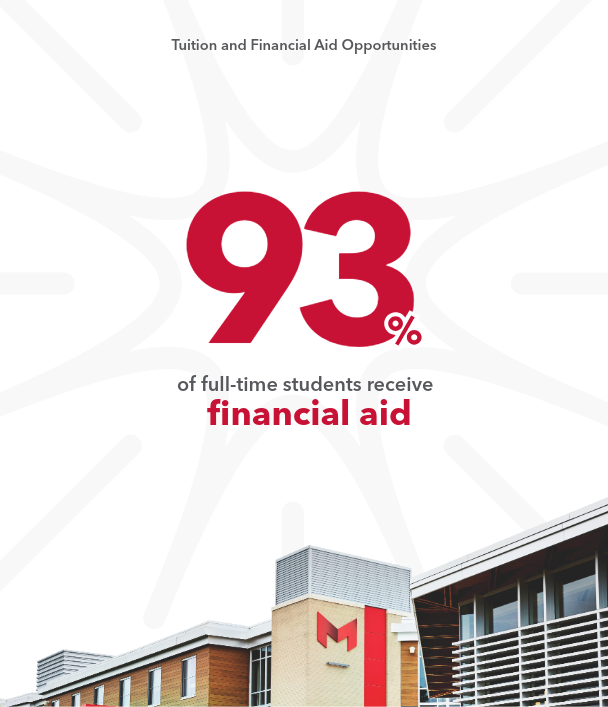
- MSN degree from a regionally accredited institution and CCNE/ACEN/CNEA accredited nursing program
- Cumulative GPA of 3.25 on a 4.0 scale in all college work
- At least one year of professional nursing experience
- Current, unencumbered licensure as an RN in the U.S.
- Official transcripts from every post-secondary school where you earned a degree or completed any graduate-level coursework
- Transfer credit request form

Applicants who do not meet the minimum GPA requirement will be required to submit a personal statement explaining the low grades and outlining plans for improvement.
The acceptance of transfer credit is at the discretion of Maryville University. View our transfer credit policy here.
Maryville’s online nursing programs require students with an international education background to have their BSN from a CCNE/ACEN accredited program for the MSN and BSN-DNP programs, and their MSN from a CCNE/ACEN accredited program for the Post-Master's Certificate, DNP, and DNP-NP programs. Please reach out to an enrollment advisor for more information.
Interested in this degree?

University details
Founded in 1872 — top-rated today
Maryville University is proud to be recognized as one of America’s best colleges by U.S. News & World Report and Forbes.
At Maryville, we invite future nursing leaders to be brave and expand their potential. Let’s be brave together.
Online DNP degrees: Meet our faculty
Mariea Snell, DNP, APRN, FNP-C
Associate Professor of Nursing and Director of DNP Programs
“At Maryville University, we are educating the future of nursing. Our graduates are tasked with serving patients with compassion, competency-based healthcare, and advocacy. Our faculty strives to ensure students are challenged to rise to the top, think critically, and be leaders in the profession. We hope to support our students in the fulfillment of their educational pursuits.”


Why should students choose to enroll in the DNP program at Maryville?
Maryville University has created a unique program that supports the work of emerging leaders in healthcare. We see each student as an individual with a unique background and area of interest. Faculty members support these interests and help them develop their body of clinical work.

How can nurses address issues of access to healthcare in rural communities?
Technology is solving many issues in healthcare. Telehealth has shown to be an effective way to meet patients in communities that lack access to care. Nursing plays a very important role in the delivery of care in this way. As telehealth evolves over time, nursing will be a key player in its development and implementation.

What are the most important skills employers are looking for?
Employers are looking for the DNP graduate to be a systems-level thinker who can create change in healthcare systems. They need people who can see not just the patient-and-disease process but also how the system works together to improve the health of communities.

What advice would you give to someone studying nursing?
Nursing education is challenging and rewarding. I would tell any nursing student to focus on the reason they decided to go into this profession. Keep that motivation to help patients and communities going forward. Give yourself the time and space to truly absorb and learn the material. Keep in mind that education is your foundation and much more learning will happen as you begin to practice.
Frequently asked questions
Maryville’s online Doctor of Nursing Practice program equips graduates to thrive in clinical and leadership roles across nursing, administration, and patient care. With a focus on family nurse practitioner coursework, this program prepares you to deliver primary care services for patients of all ages, from pediatrics to geriatrics.
Whether you envision yourself in a private practice, community health center, or hospital-based role, the FNP track is designed to ensure you’re ready to address diverse healthcare needs. Additionally, this program positions you to step into leadership or educational roles within family-focused healthcare settings.
According to PayScale, DNP graduates earn an average salary of approximately $115,000, covering both clinical and nonclinical roles, with clinical positions often offering higher pay. The top 10% of FNPs report salaries of $131,000 or more.
Salaries vary based on factors like discipline, education level, years of experience, and location of practice.
The Commission on Collegiate Nursing Education (CCNE) accredits Maryville’s online DNP programs, guaranteeing adherence to strict academic standards. This ensures the program delivers exceptional nursing education.
Additionally, Maryville University has been regionally accredited by the Higher Learning Commission (HLC) since 1941.
As the nursing field progresses toward greater responsibility and autonomy, advanced education is becoming essential. As a terminal degree, the Doctor of Nursing Practice (DNP) is one of the highest credentials in nursing, offering the most advanced training for nurses. DNP-educated family nurse practitioners (FNPs) are uniquely positioned to enhance patient care, specialize in advanced practice areas, and take on leadership roles.
With their extensive education, DNP-prepared FNPs provide comprehensive primary care to individuals and families across all age groups, from infants to seniors. They are skilled in preventive care, acute and chronic treatment, patient education, and management. In addition to clinical expertise, earning a DNP equips FNPs with the tools to influence healthcare policy, lead in administrative roles, and contribute to research and education — broadening their impact beyond traditional nursing practice.
Graduates of this program are eligible to pursue certifications for FNP practice, including the Family Nurse Practitioner Board Certification (FNP-BC®) offered by the American Nurses Credentialing Center or the Family Nurse Practitioner (FNP) certification through the American Academy of Nurse Practitioners Certification Board.
Maryville’s NP graduates consistently exceed national averages on certification exam pass rates across multiple specialties.
For those not pursuing NP certification, the standalone DNP program is an option, allowing for an earlier graduation and preparation for advanced nursing or related roles.
Your career goals will guide you to choose between a DNP and an MSN. A DNP is a terminal degree that emphasizes leadership, research, and advanced clinical practice, perfect for nurses pursuing leadership roles or improving care quality.
An MSN may be more suitable for RNs moving into a nurse practitioner role or for NPs exploring a specialization. While MSN programs cover key nursing concepts, DNP programs take education further, unlocking wider opportunities.
You don’t need an MSN to pursue a DNP. For BSN-prepared nurses, we offer a BSN to DNP pathway, allowing you to move straight into a DNP program on an accelerated timeline.
If you’re interested in pursuing a specialization other than, or in addition to, family care, we offer four other DNP concentrations for you to consider:
- Adult-Gerontology Acute Care NP
- Adult-Gerontology Primary Care NP
- Pediatric NP
- Psychiatric Mental Health NP
Opting for a DNP without a concentration streamlines the path to your terminal degree and allows you to graduate more quickly, but this path does not qualify you for NP certification.
Online Doctor of Nursing Practice careers


